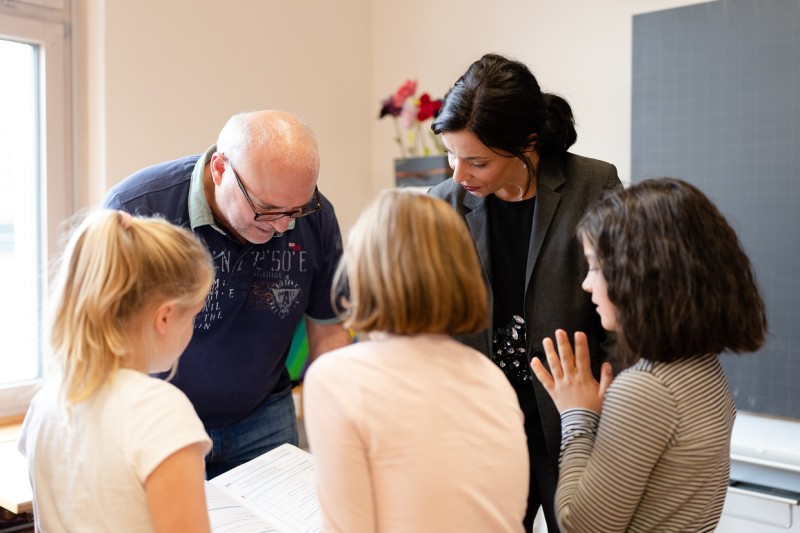
Minister of Education at SOS Heart Box
With the SOS-Herzkiste, the SOS Children's Village has created a ready-made teaching and learning material for schools so that children can expand their social skills such as mindfulness, appreciation and mutual reinforcement. On Monday, the Minister of Education, Dominique Hasler, visited the Schellenberg primary school to see for herself.
At the latest since the restrictions caused by the Covid pandemic, there has been a renewed focus on the fact that schools are not only places of learning. Schools are also social spaces with many encounters, and good relationships between children as well as with teachers are central prerequisites for a successful school career.
Promoting respectful cooperation As Magdalena Frommelt, Managing Director of the SOS Children's Village Liechtenstein, explains, this is precisely where the SOS Heart Box comes in. "We want to support pupils with the right tools to promote respectful and appreciative cooperation." The Heart Box is initially designed as a four-year project and will run until 2025. The target group is pupils between the ages of 10 and 14 in Liechtenstein. The Heart Box is free of charge for the schools. It contains teaching and working material for 10 to 12 school lessons on topics such as feelings, mindfulness, strengths, appreciation and perception. In addition, each class receives a voucher for a workshop with a specially trained SOS Children's Village trainer who accompanies them for half a day on a specific topic.
"Increasing importance" On Monday morning, Walter Anyanwu, such a project leader, was at the Schellenberg primary school in the middle school B class. Together with the children and the class teacher, he worked on enabling each individual child to develop holistically and strength-oriented and to take on responsibility. "It was very impressive to experience how the children approached the topic of social togetherness in depth and how they approached each other," explains Education Minister Dominique Hasler. She visited the class and looked over the shoulders of the pupils, the teachers and the project leader during the implementation. "How we interact with each other as human beings is becoming more and more important in a world that is changing ever faster. Projects like the Herzkiste are therefore an enrichment to the curriculum, which also promotes precisely these competences," said the Minister of Education.
Over the next four years, the Herzkiste is expected to be used in about 90 school classes of the 3rd, 4th and 5th primary level as well as almost 25 classes of the 1st and 2nd secondary level.

